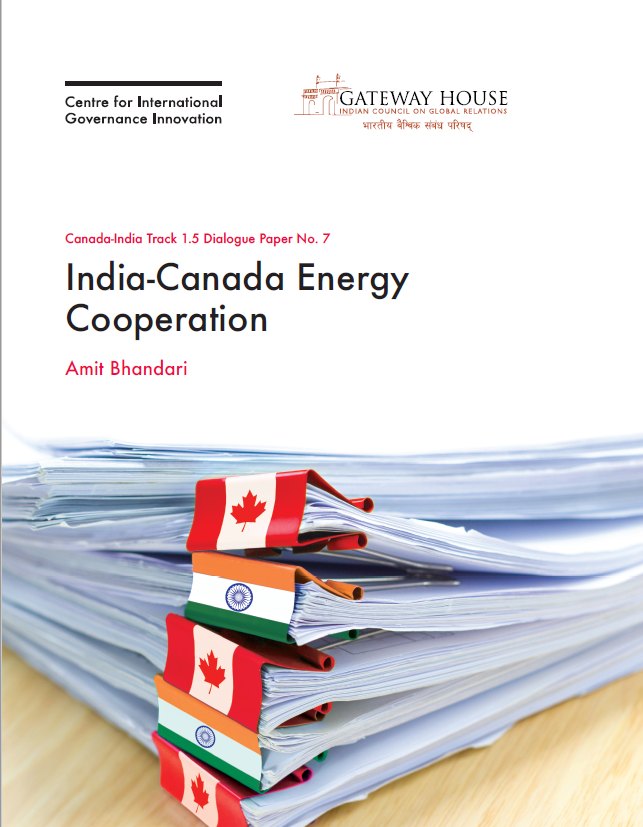This paper is part of the India-Canada Track 1.5 Dialogue.
India-Canada Track 1.5 Dialogue on Innovation, Growth and Prosperity is a collaboration between Gateway House: Indian Council on Global Relations and the Centre for International Governance Innovation (CIGI).
The India-Canada Track 1.5 Dialogue works jointly on multilateral issues and identifies areas where improved cooperation could benefit both countries. To address these challenges, the papers produced under this partnership will help to develop policy recommendations to promote innovation and navigate shared governance issues that are integral to the continued growth of Canada-India bilateral relations.

This paper is part of the India-Canada Track 1.5 Dialogue. View the first, second and fourth part of this four-part paper series.
Executive Summary
India is now the world’s third-largest consumer of petroleum, with imports of more than four million barrels per day (bpd). This rate is projected to increase to nine million bpd by 2040.
Petroleum is the single largest item on India’s import bill and high oil prices are a risk to India’s economic growth. Over the past 15 years, India’s public sector oil companies have made more than 50 investments in oil and gas fields across the world to reduce the risk from high energy prices.
In contrast, Canada has the world’s third-largest petroleum reserves in the form of oil sands and is also the third-largest exporter of petroleum. Canada’s petroleum sector, which produces 5.2 million bpd of oil, is projected to grow to 6.5 million bpd by 2030, despite opposition from sections of the public and the inability thus far to put in needed pipeline infrastructure. Despite this growth, the India-Canada energy trade is minuscule and there is no significant current Indian investment in Canada’s energy sector either.
Gateway House studied the feasibility of Indian investment in Canada’s petroleum sector and presents its findings in this paper, along with a suggested path and best prospects for investment.
You can download the PDF version of this paper here.
Amit Bhandari is Fellow, Energy and Environment Studies Programme, Gateway House.
This paper was exclusively written for Gateway House: Indian Council on Global Relations. You can read more exclusive content here.
For interview requests with the author, or for permission to republish, please contact outreach@gatewayhouse.in.
© Copyright 2020 Gateway House: Indian Council on Global Relations. All rights reserved. Any unauthorized copying or reproduction is strictly prohibited.